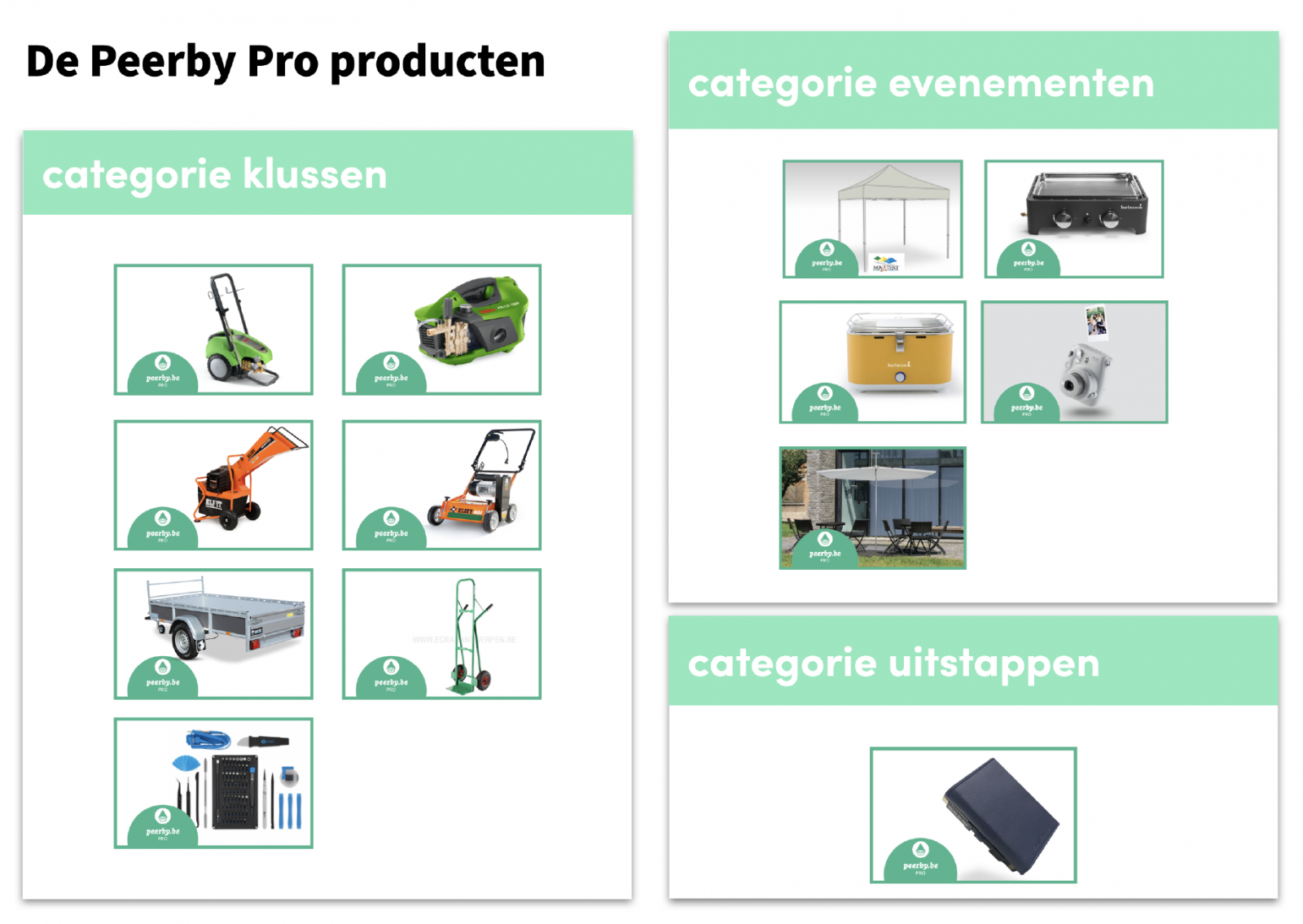Topics
We organise our actions in six thematic & strategic agendas:
Strategic Agendas:
Bio-economy
Circular Construction
Chemicals/Plastics
Manufacturing Industry
Food Chain
Water Cycles
Seven leverages provide additional support:
Leverage effects:
Lever Policy Instruments
Lever Circular Procurement
Lever Communication
Lever Innovation & Entrepreneurship
Lever Financing
Lever Jobs & Skills
Lever Research
What, why and how?
Why are we pursuing a circular economy?
Future visions 2050
How do we see our circular future?
About our management
Who steers what at Flanders Circular?
Peerby Pro
Borrowing stuff from companies
A switch to a sustainable circular economy is urgently needed, because overconsumption and overproduction have a disastrous impact on the climate and the environment. For example, up to 65% of all CO2 emissions originate from production.
Peerby is an online platform where users can borrow things from each other, such as tinker or garden tools, electronics, party and camping equipment, household appliances ... Neighbours who lend each other things, ensure a more sustainable use of the things we all own together: the product itself is used to the maximum, and the user can avoid a new purchase. The platform is very successful: as much as 85% of borrowing requests already find an answer there.
With Peerby Pro we now want to go a step further and also involve producers who rent out products as a service on the supply side of the platform. Whoever needs something places a call, selects the desired offer and simply collects the product from a neighbour who already has it on loan. The product remains the property of the producer, but it travels from user to user.
Peerby Pro was a pilot project in which a relatively small number of producers in Ghent made a number of products available on the platform. At the current scale of 5000 users in Ghent, this model is not yet sufficiently interesting, but we were able to demonstrate the scalability of our model.

Wijdelen vzw
Partners UGent, Regenerative Design bvba, Kamer van Koophandel West-Vlaanderen vzw, Peerby BV, Triodos
Sectors
Themes
Organisations
Website
MOST IMPORTANT
RESULTS
- While some companies found this idea rather harmful to their business, others saw it as an opportunity to stand out and revalue more expensive/sustainable products. 10 producers committed themselves and together made 13 products available through Peerby Pro.
- The project complies with a number of circular principles: the user only pays for use and does not buy a new product, a product has multiple users so that its capacity is better utilised, in the event of a defect, the product is repaired, etc.
- By lending products instead of buying them, we also save a considerable environmental impact: less water consumption, less CO2 emissions, less consumption of raw materials, less waste...
- Not to mention the social impact of the rental model: each exchange creates a social encounter that would otherwise never have happened, sometimes providing beautiful moments and lasting social contacts.
MOST IMPORTANT
LESSONS LEARNED
- We learned that we actually already had all the technology, practical organisation, legislation, product management and systems in place to roll out this model. For instance, the Peerby user platform, our communication tools, the GPS tracking system ...
- We discovered that the free-floating system used, in which the products have no fixed storage location but travel from user to user, is successful. By involving users in the partial services, we save a considerable amount of transport and storage costs.
- We learned that users attach particular importance to quality at a reasonable price. The most common remark about traditional rental companies is that they are too expensive and cumbersome. That is a huge potential for improvement that we can capitalise on.
- On the current scale of 5,000 users in Ghent, this model is not very interesting yet, but our pilot project shows its scalability. If producers organise themselves further, they will be able to set up a sustainable model that provides a continuous income and a more intimate customer contact.
















